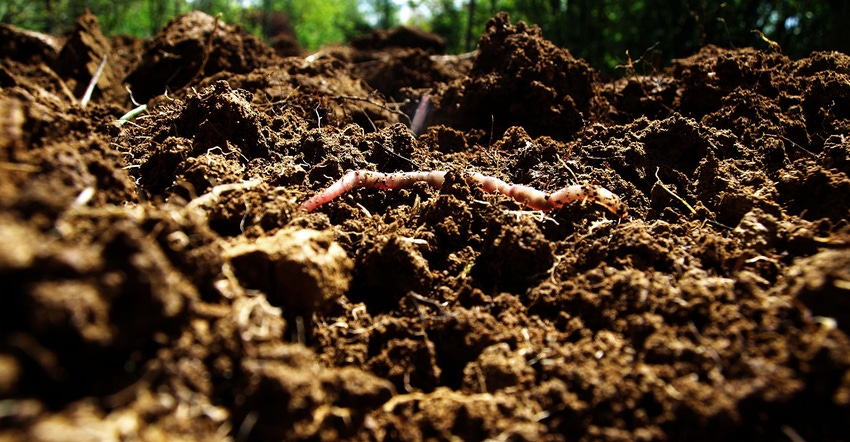
Given lower commodity prices and high input expenses, Kevin Ross is finding it hard to pencil out adding one more cost — cover crops.
“You are not going to plant cover crops and get a return that next year,” Ross, the first vice president for the National Corn Growers Association, told a group gathered at the Soil Health Partnership Summit in St. Louis. “It is a mindset change when it comes to the soil health conversation.”
Ross likened cover crops to a new building on the farm. “It is an investment in the long term,” he explains. “You know it will be there for a number of years in the operation.” So, he plants a few acres on his operation near Minden, Iowa.
It is not just farmers playing the long game with soil health — companies relying on farmers and ranchers are asking for it as well.
Eyeing the goal
When McDonald’s promotes sustainability it includes soil health, so much that the company is a sponsor of the Soil Health Partnership. “We are engaged in this journey as well,” says Townsend Bailey, McDonald’s sustainability director in North America. He adds that many farmers and ranchers ask if this sustainability and soil health movement is just a fad.
“No single customer has ever come into McDonalds and said, ‘what is going on with soil health,’” he says. “That doesn’t mean they don’t care, they do care. They are telling us over and over that they care where their food comes from and how it is grown. But this (movement) is not going to go away.”
Actually, Bailey says it has been a part of the McDonald’s company environment from its early years — back to 1957. The company’s platform focused on providing food in an ethical, truthful and dependable manner. “The terminology has evolved on how we talk about it,” he says. Today, they focus on priority areas including climate change, water, waste, forest preservation, and animal rights. “Four of them point directly to soil health.”
Typically, when looking to reduce in areas such as greenhouse gasses or waste, it means doing less. “When you look at soil health, it looks at how do we do more,” Bailey says. “We don’t have control over how the soil is cared for, that is up to the farmer and rancher. But how we support them, where do we engage in soil health is a priority.”
He says soil health is one crusade where food companies, farmers and ranchers can engage with each other and with consumers. Bailey adds it is an area that can provide a positive narrative for agriculture.
Advancing the play
Idaho farmer Wayne Hurst understands the importance of soil health. He’s been tracking organic matter on his farm since the 1980s. He’s found that as organic matter increased, the requirement for nitrogen decreased. Good news for his bottom line and better news for consumers.
“They see us adding to the soil, the earth,” he says.
Hurst grows sugar beets, dry beans, alfalfa, corn and barley in southcentral Idaho, but says wheat is the key to boosting his soil health program. “Wheat is my cover crop,” he says. While other farmers in the region plant high value commodities like potatoes and beans, Hurst sticks to wheat.
While he says it is tempting to go for the short-term gain, planting cover crops like wheat is worth the benefit to soil health.
Teaming up
“At the end of the day without soil there is not future to our business,” Bailey says. That is why McDonald’s is investing in groups such as the Soil Health Partnership. “We want to see where we can help our farmers and ranchers meet their goals.”
Ross is one farmer in the Soil Health Partnership network who is trying out cover crops as a way to improve soil health. However, he admits he is still trying to sell himself on the concept. It will take more data, he says, but that is coming. There are 140 partner farmers in the network that share production practices and results. The data set now spans over four years.
Hurst says that he doesn’t have all the answers for his own farm — yet. He says initiatives such as the Soil Health Partnership bring farmers and companies together to learn. “You have to be willing to take those risks and blaze those trails.”
About the Author(s)
You May Also Like






